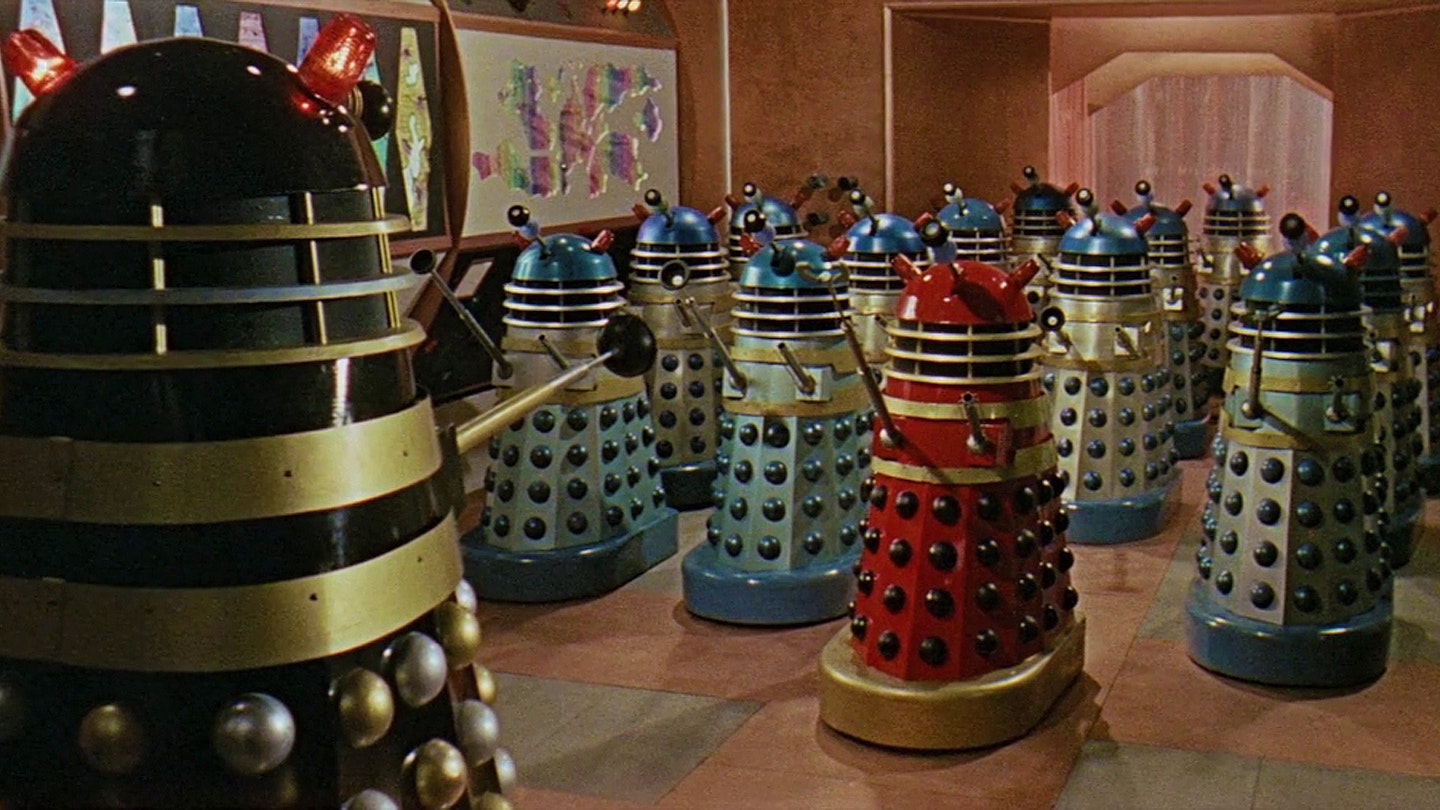A big-screen adaptation of the BBC’s enormously successful TV franchise, this was an early example of dumbing-down and pumping-up. The Doctor, played on television by William Hartnell (and others) as a mysterious alien, is turned -- in one of Peter Cushing’s rare terrible performances -- into a childish, daffy, thoroughly human scientist (whose surname actually seems to be ‘Who’), first seen chuckling over the adventures of Dan Dare in the Eagle comic, and much-given to pottering about the laboratory overdoing the eccentric mannerisms.
The crew of the TARDIS makes room for kids’ entertainer Roy Castle and the Doctor’s granddaughter is de-aged from a sulky, sultry teenager into a cheery little girl (Tovey). The Thals, the heroic humanoid race persecuted by the Daleks, are the weediest alien guerillas in the movies, a crew of Julian Clary lookalikes with drama school accents who have reverted to a tribal level of pre-industrial civilisation but kept their eye make-up skills honed.
Nevertheless, for a generation of behind-the-sofa fans, the film is beyond criticism – simply for getting the Daleks (*the *great British monsters of the 1960s) on cinema screens in lovely glowing colours, and having hordes of the things trundle evilly around their metal city barking ‘ex-ter-min-ate’ and puffing killer smoke at cringing victims.
The skeleton of Terry Nation’s H.G. Wells-derived story is still workable, with a suspenseful countdown-to-doom finale (‘that’s my lucky number!’) and the sort of sets, music and monster-choreography impossible on a 1960s TV budget. Daleks’ Invasion Earth 2150 AD, the sequel, is even better, but the two Who films still make an engaging kiddie matinee double bill.
